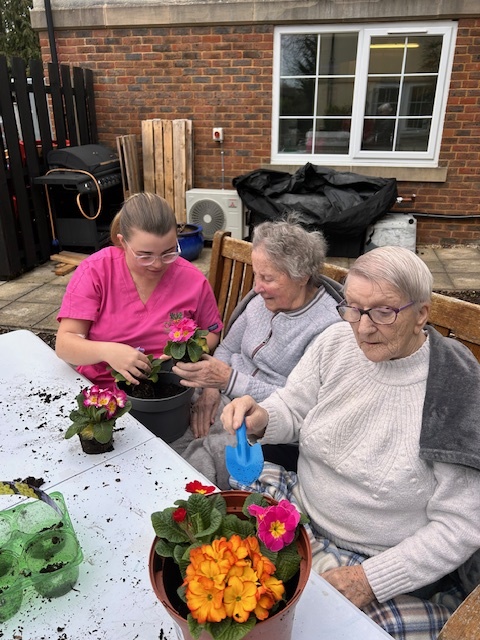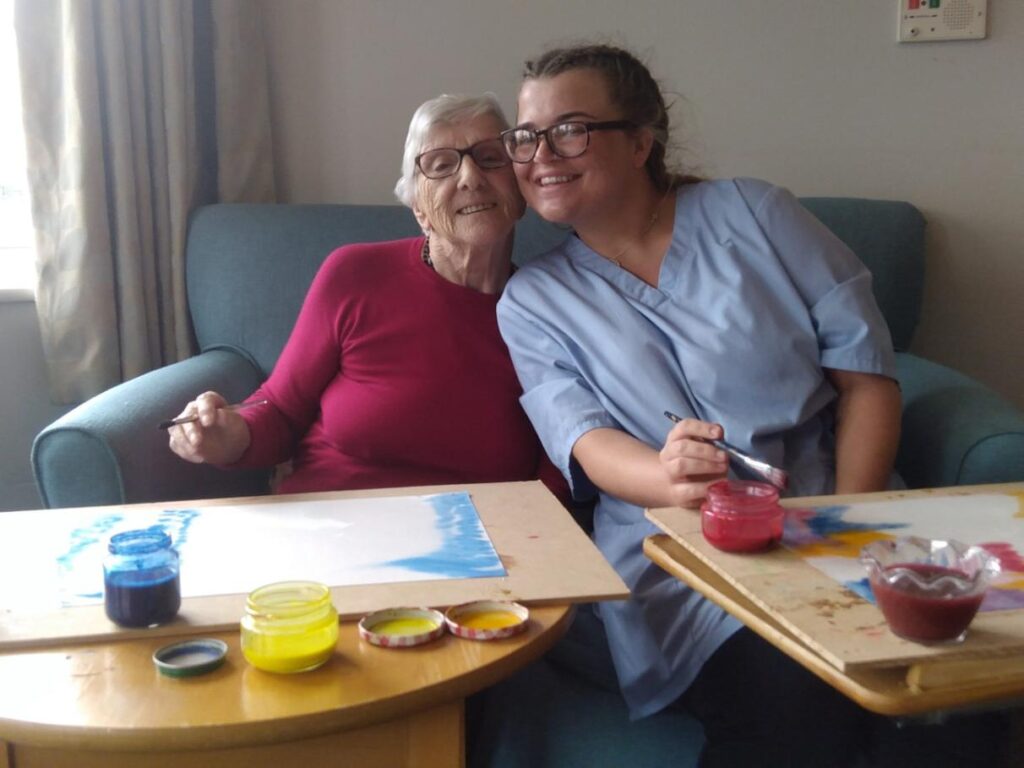What is a Residential Care Home and Who Does It Benefit?

What is Residential Care
Residential care homes offer a safe, structured, and welcoming environment for individuals who are no longer able to live independently. These homes provide 24-hour support with day-to-day tasks and personal care, all within a comfortable residential setting. While they do not typically provide nursing care, residents receive assistance from trained carers who are on hand to help with a wide range of needs, from dressing and bathing to mobility and meals.
The main goal in a residential care setting is to support older people with dignity, ensuring they are able to enjoy as much independence as possible, while still receiving the care and support they need. These homes are often tailored to those who are experiencing challenges due to age-related frailty, a physical disability, or early-stage dementia. Residents can benefit from their own bedrooms, access to shared lounges and dining rooms, and a strong sense of routine and community.
For many families, the decision to move into a care home comes after recognising that a loved one is struggling to manage alone. The environment of a residential home can provide peace of mind to relatives, knowing that help is available day and night.
The Difference Between Residential and Nursing Care
It’s important to distinguish between residential care and nursing care when considering the move into a care home. A residential care home is designed to support individuals who require assistance with personal care and daily living but who do not have complex medical needs. For residents who require frequent medical attention or care for a complex medical condition, a nursing home may be more suitable. In this environment, nursing care is provided by qualified nurses who can administer medication, carry out assessments, and provide more specialist care around the clock.
Some care homes are dual-registered or all-inclusive, meaning they can provide nursing care and residential care within the same setting, which allows residents to transition should their health needs change.



What Are The Advantages of Residential Care?
There are many advantages of residential care, especially those who are living alone, feeling isolated, or finding household chores difficult. Others may be recovering from an illness or fall and need convalescent care for a short period before returning home. In some cases, short-term respite care is needed to give a family member who provides care a much-needed break.
Residential care in East Dorset may also be a suitable long-term option for individuals who are struggling to live at home due to having difficulty managing personal care needs such as dressing, nail care, or using the bathroom. While these challenges do not necessarily require the input of a qualified nurse, they can greatly affect someone’s well-being and safety.
In many cases, people who reside in a residential care home are also living with early-stage dementia or a physical disability. While these conditions might not require full-time medical care, the support provided by care assistants can make a significant difference in their quality of life.
When is the Right Time to Consider Residential Care?
Deciding to transition into a care home is not easy, and it’s normal for both the individual and their family to feel unsure. In some situations, the need for more support becomes apparent gradually. Perhaps an older person is struggling to keep up with household chores, missing meals, or feeling anxious about living alone. In other cases, a decline in health or hospital stay may lead to a recommendation for residential care.
It is also an ideal environment for those who would benefit from grouped living. A residential care home will come with daily social opportunities and can have a huge impact on the overall well-being of those who enjoy being amongst like-minded individuals
A good starting point is arranging a needs assessment through the local council. This will help families to understand what type of care services are needed, whether residential care is suitable, and what financial support might be available.
After Making The Move
When viewing and comparing care homes, one of the most important factors to consider is what daily life will be like. When they move in, residents are encouraged to personalise their rooms, take part in activities, and enjoy a social life that suits their interests and abilities. Many homes will have facilities available to residents on a 24-hour basis, such as private gardens, a hair salon, quiet areas and an all-inclusive activities programme.
While residents focus on doing the things they love most, there is a team of friendly and compassionate care experts who can focus on providing support tailored to their specific needs and preferences. From gentle support with personal care to assistance with mobility and companionship, the role of the care assistant is to provide support that feels natural and familiar.
Some residential homes also offer care for those living with low-level dementia, ensuring they can live independently for as long as possible while still getting the support they need.



Choosing The Best Residential Care Home
When searching for a residential care home, many families begin by looking online, reading reviews, and arranging visits to homes in their local area. It’s important to visit more than one home when searching and to ask questions about what they offer to see if it aligns with what you are looking for.
The best homes will always prioritise person centred care, ensuring that each resident feels respected, understood, and valued. Care homes should offer more than just physical support — they should provide a space where older people can feel part of a community, enjoy meaningful routines, and continue to live with dignity.
The Role of Families in the Transition
Making the move into a care home can be emotional for both the resident and their family. It is important to find a care home that encourages loved ones to maintain an active part in the residents' care journey through regular visits, involvement in events, open communication and collaboration with care planning. For both residents and their relatives, the right care home can bring reassurance, stability, and a sense of peace of mind that is hard to replicate at home.
Residential Care at Oakdene
Oakdene Care Home in Wimborne Minster offers a welcoming and supportive environment for those in need of residential care, dementia care, respite care, or palliative care. Each resident has unlimited access to a comfortable en-suite bedroom, beautifully maintained communal areas, and a rich programme of activities that help to promote both independence and well-being.
We have a compassionate and friendly team who provide 24-hour care and support to residents, all tailored to their individual needs. Whether someone is with us for short-term respite or long-term residential care, we always strive to ensure they maintain a rich and fulfilling lifestyle full of the things they love most.
Families are always welcome at Oakdene, and we work closely with them to make sure that care plans reflect the preferences and routines of their loved one. With close links to the local community and local schools, as well as strong connections with healthcare professionals, we are able to provide exceptional support that considers every aspect of a resident’s well-being.
Whether you're beginning to search for care options or simply want to understand more about what we provide at our care home in East Dorset, our team at Oakdene is here to provide support and guidance every step of the way. Get in touch and book a tour today.





